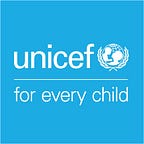Helping children thrive
Talk, play and attention from parents and caregivers makes for healthy, well-nourished and curious children.
The first five years of a child’s life have a profound effect on their future. Studies show that children who attend some form of preschool are more likely to succeed in education, yet in Mali’s Mopti region fewer than 2% of children attend such programmes. To tackle the issue, UNICEF and its partners are supporting parents and caregivers to promote early childhood development.
For farmers and pastoralists living in the dry brush and rocky outcrops of Mali’s Dogon country, grazing and harvests are the primary concern. But cognitive development of young children has become a priority as parents seek to give their children the best start in life so they thrive.
In the small farming village of Siby-Siby, Tandou Ouologuem can’t afford toys, so she plays a simple game of catch using pebbles with her four-year-old twins Housseny (centre) and Hassana who shriek with delight when they catch one.
Nurturing parent-child relationships are essential for children in their early years. During parental education classes provided with UNICEF support by the NGO BorneFonden, Tandou learned how to play with six-month-old Mariam Samba — to the delight of both mother and child.
Committed to improving the life and future of her children, Tandou walks with her twin boys to the early childhood development centre in Siby-Siby every morning, leaving them in the capable hands of volunteer educators. The UNICEF-supported structure opened in 2015.
Children learn the alphabet, basic numeracy, and the names of different animals and plants with the help of Kadidia and other volunteer educators at the centre. But they also spend time having fun, as all children should. Twins Housseny (right) and Hassana play on a seesaw with Kadidia.
Kadidia shows Housseny how to wash his hands properly with clean water and soap. Handwashing with soap is among the most effective and inexpensive ways to prevent the spread of disease and good hygiene practices help ensure children are healthy, so that they can grow and thrive.
Play is a critical form of stimulation that boosts children’s cognitive, physical, social, and emotional development. Here, young girls play on swings at the centre.
Because early learning through stimulation and play increase school readiness, children arrive in primary school ready to learn and better able to reach their full potential. Kadidia joins twins Housseny (left) and Hassana as they play with building blocks and toy cars.
Malnutrition, which can impair brain development, affects 26% of preschool children in Mali. Thanks to parental education lessons, Tandou now adds powdered milk, baobab pulp and sugar to her porridge, and her twins Housseny (left) and Hassana take a taste test.
With just five percent of children in Mali benefiting from early childhood development programmes, many start school at a disadvantage. In nearby Songho, children leave the early childhood development centre which opened in 2016; with only 60 places there is already a waiting list.
“Before, he was shy and afraid of people,” says Hama of his four-year-old son Moussa, who attends the centre in Songho. “Nowadays, he doesn’t hesitate to sing out loud! Sometimes he knows things that even his older brother, who is in third grade, doesn’t know.”
“The advantages are countless,” says Songho’s village chief Mama Karambe of the early childhood center. “All the kids that have been here are stimulated and the entire village is happy. Parents understand the importance of education now.”
